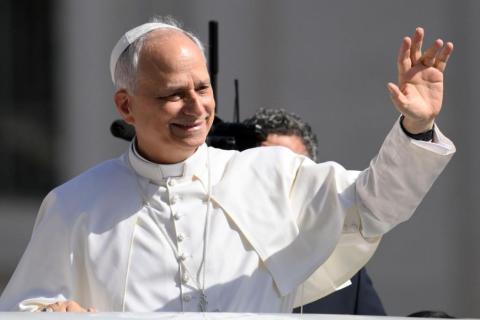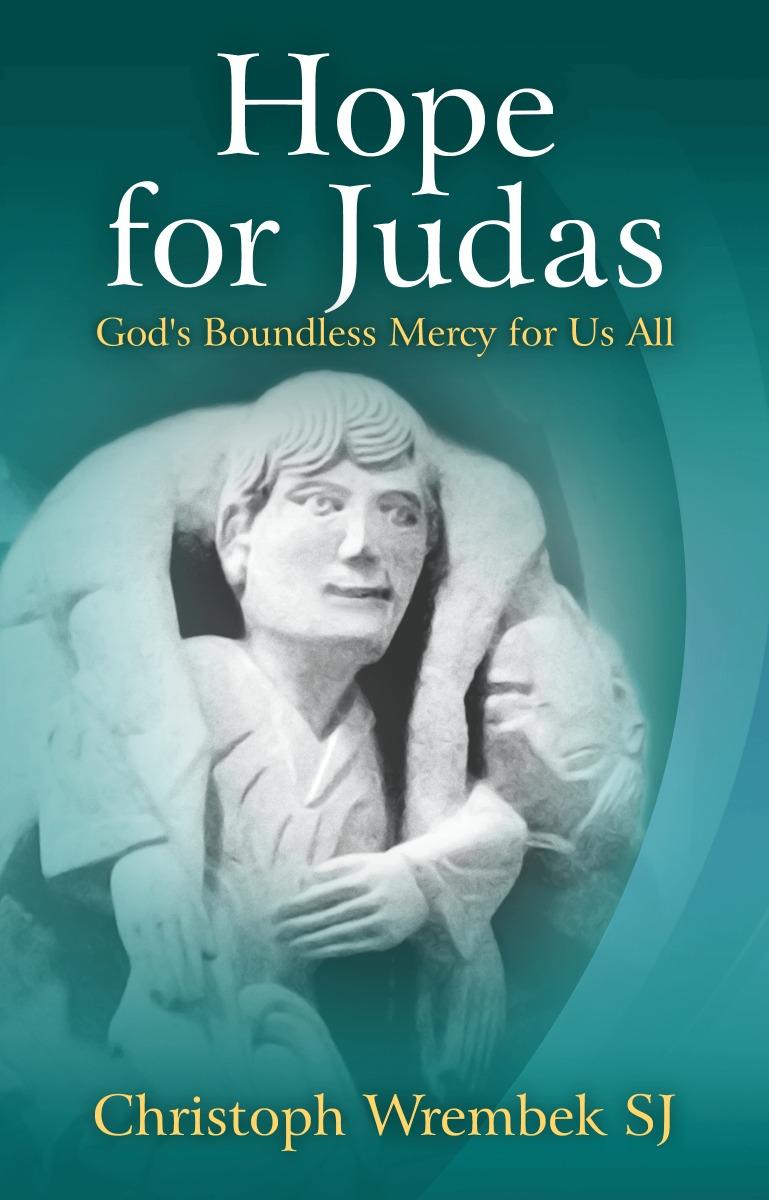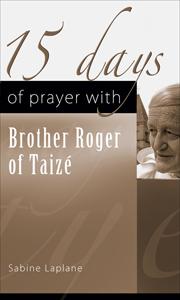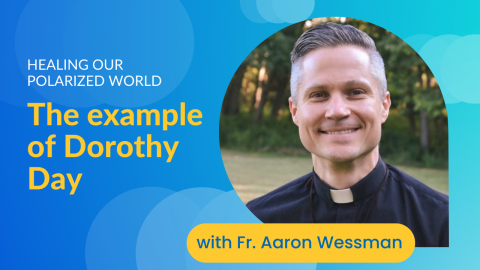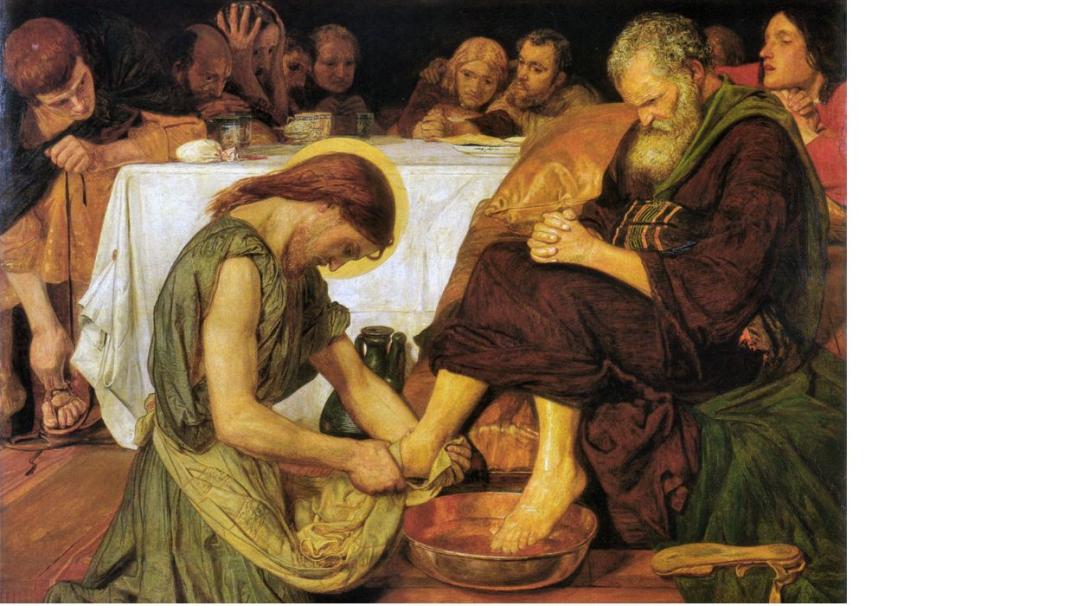
© Wiki Commons | Jesus Washing Peter's Feet by Ford Madox Brown
Have you seen them, the images of Pope Francis as he was washing and kissing the feet of twelve women (women! not inmates, or convicts, or prisoners; but simply: women!) in the Rebibbia prison, in Rome, on Holy Thursday, the foot-washing ceremony reminiscent of what Christ did to his disciples on the eve of his crucifixion?
I invite you to look them up. You can easily find them on YouTube, and even on CBS, CNN, Sky News, The Times, Reuters, South China Morning Post, Associated Press, NBC, just to name a few. These are media outlets usually far from kind toward the Pope and Catholicism generally. Extraordinary images, after so many others of unprecedented inhumanity have been making our eyes weep and our hearts bleed for so many months.
Last year Francis went to a juvenile prison for the same ceremony. But this year, two things struck me enormously—the reaction of some of the women, who could not hold back copious tears as that man dressed in white in the wheelchair washed and kissed their feet; and, even more, the smile and the look full of humanity that Francis directed to each one as soon as he finished the washing of the feet.
Francis went far beyond what he needed to do. Indeed, I would say that he moved to another dimension, the one to which the true alter egos of Christ have access, because they have made Christ’s feelings, not just his actions, their own. The Pope bestowed on each of them a gaze that was the same as Christ’s and that seemed to say, “Go your way, and from now on do not sin again.”
Until now, I would have interpreted this legitimate bidding, addressed by Jesus to the adulteress who had just been saved from stoning, or to the paralytic who had been miraculously healed in Jerusalem, as an invitation to convert and change one’s life, avoiding running into the same mistakes of the past again (but the paralytic, what fault did he have?).
Francis’ gaze made me realize that, instead, Jesus’ words are not an admonition or, worse, a threat, or a suspended sentence, a conditional concession of mercy with the consequence that if one falls again, they will have to serve the old and the new punishment. What Jesus formulates is an invitation, a hope, an encouragement, “I hope you may not fall again, for you would hurt yourself!” As would a father, mother, brother, sister, or true friend. Confirmation of the benevolent granting of another chance, of an unlimited and unconditional opening of credit.
I also understood Jesus’ words to Judas at the Last Supper in a different way, that awful directive, that the Italian language CEI Bible renders as “Quello che devi fare fallo al più presto!” (Gv. 13:27)–which translates as, “What you need to do do as soon as possible!”—and which I’d always interpreted as a request not to waste time in selling him out to the high priests, my heart clenching to the core. How could Christ encourage Judas to do what would lead him to take his own life?
Instead, I now understand that what Jesus was asking of Judas, and the many Judases of today, including me, was to quickly and radically change course in his thoughts, to accept that God had different plans than his own and the coming of the Kingdom would come through the cross rather than through political or military power.
“The last train is coming, don’t miss it! I offer you another chance. What you must do now it is to accept that true strength is in meekness, in forgiveness the best revenge, the winning revolution is the one that begins with changing oneself! Hurry up and do it, before the prince of evil takes complete possession of you!” Judas could not bring himself to heed those words and, as Scripture says, he left, “and it was night.”
This is what Easter and Christ’s resurrection teaches me now: the granting of another chance, first of all to me so that I may finally put to good use all the gifts life has given me and with it succeed in being a worthy and effective witness to Christ. Then, may I do the same to any of my neighbors: may I grant them another chance!
If God does not look at the past and my mistakes, but continually renews his trust in me, believing, even against the evidence, that I can succeed in being different and better, I must do the same with everyone.
If God does not look at the past and my mistakes, but continually renews his trust in me, believing, even against the evidence, that I can succeed in being different and better, I must do the same with everyone. I have no excuses. I can no longer be satisfied with the kind of forgiveness that boils down to not complaining aloud about the alleged evil suffered, while continuing to harbor the certainty that the perpetrator belongs to the category of troublesome people. No! I too, with God’s grace, must move the boulder in front of my tomb and allow my resurrection to take place, able at last to look at everyone with new and pure eyes, eyes of resurrection, giving everyone not just one new opportunity, but up to seventy times seven chances!
This will be my Easter season, and I will in turn be an instrument of others’ Easter seasons. “To be Easter, to be another Christ,” rather than simply wishing for it. Is there any Easter truer and more beautiful than this, which even bombs cannot destroy?






